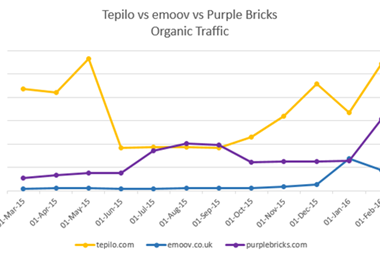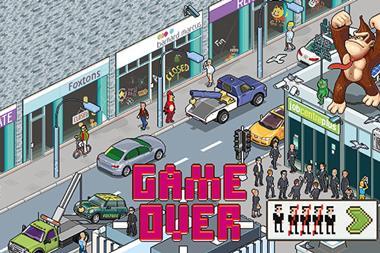The agent is dead. Long live the agent.

New technologies are hitting the market that will fundamentally change the face of commercial property.
This may spell death for traditional ways of doing business, so agents need to harness what they do best if they are to keep adding value for their customers.
All business sectors have been disrupted by technology. The digital tech economy is growing 2.8 times faster than the rest of the economy and 41% of jobs in that economy exist within traditionally non-digital industries.
Commercial real estate has been one of the last to feel the impact.
We’ve seen technology transform the residential market with innovations such as easyProperty, the ‘online estate agent’, and Purplebricks, the ‘24/7 estate agent’, but this is the low-hanging fruit. Commercial property, with its big-ticket deals, is the real prize.
Commercial agents disrupted
Now technologies are hitting our market. For example, CompStak uses crowdsourcing to create its online database of transactions with deal-level information, VTS and HighTower provide platforms for leasing and asset management, and LiquidSpace and Hubble allow users to find and share office space. These are just a few of the innovations and services set to disrupt every element of how a commercial property agent offers his or her services.
Think about the current role of an agent and how it will change. Finding space: customers can now draw up detailed information about an available property on an online platform, with search criteria intricately tailored to their requirements. Organising viewings: virtual-reality offices could take away the need for anyone to leave their computer screen. Negotiating: automatic software to help with leases could cut down the need for a six-week lease debate.

Off market is a different beast
It all begs the question: what is the point of an agent anymore? Are they becoming obsolete?
The easy answer is no. Commercial property is a different beast to residential sales and many deals occur off market. Property is always described as a people business, and people will always want to procure professional advice from those who understand the intricacies of each market.
We can book a taxi through Uber or place an order with Deliveroo, both trusted platforms that get rid of human interaction, but commercial property concerns huge transactions involving millions of pounds’ worth of liability; these will always need real human input and advice for all parties.
This has become increasingly important over the years as the market has moved to a global stage - a foreign buyer will certainly not rely on stats from a website when spending millions of pounds.
The complicated answer, however, is maybe - and yes, for those who are complacent. In the residential market technology has made it possible for people to bypass an agent.
While most tools emerging in the commercial arena focus on making the transaction itself more efficient and transparent rather than exposing all information to the customer, there’s no doubt the customer is becoming far more knowledgeable.
More time for clients?
If technology streamlines the mechanics of a deal and the exchange of information, agents will have far more time on their hands. What can they offer to clients with that time?
That is up to each agent to decide for themselves. New services, an even higher level of market knowledge and an ability to sniff out a trend before the customer gets a whiff of it are just for starters.
Twiddling their thumbs while technology makes the world spin around them is a sure way to end up with a redundancy package.
Luke Appleby is co-founder of Kontor
































No comments yet